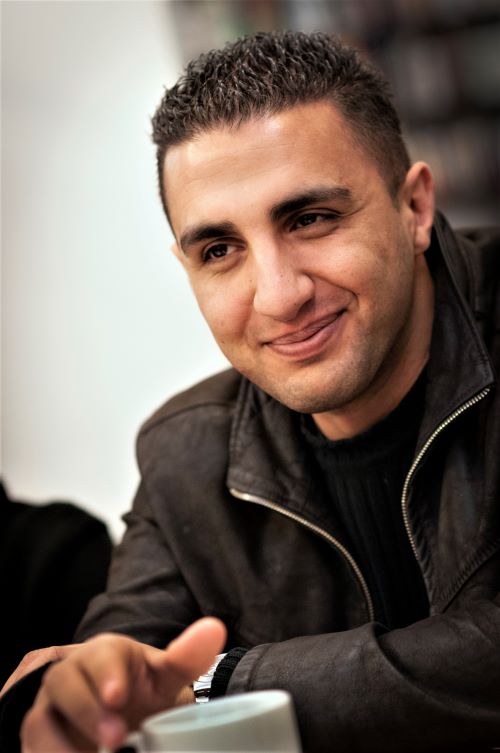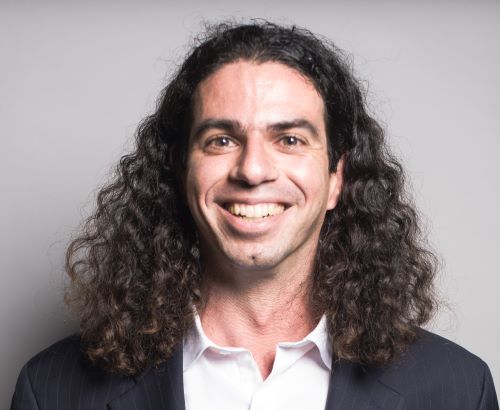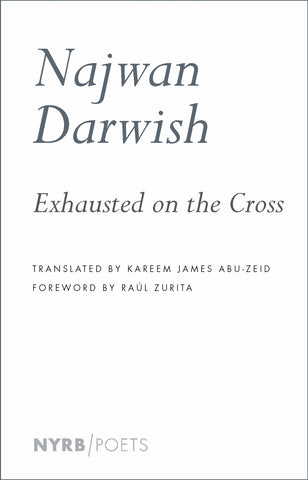If I could come back,I wouldn’t come under any other banner.I’d still embrace youwith two severed hands.I don’t want wings in paradise,I just want your graves by the river.I want eternity at the breakfast tablewith the bread and oil.I want you—earth,my defeated banner.
My Defeated Banner
Najwan Darwish
Translated from the Arabic by Kareem James Abu-Zeid
Feature Date
- June 10, 2022
Series
- Translation
Selected By
Share This Poem
Print This Poem
“My Defeated Banner” from EXHAUSTED ON THE CROSS by Najwan Darwish.
Published by New York Review Books on February 23, 2021.
English Copyright © 2021 by Kareem James Abu-Zeid.
All rights reserved.
Reproduced by Poetry Daily with permission.

Najwan Darwish (b. 1978) is one of the foremost contemporary Arab poets. Since the publication of his first collection in 2000, his poetry has been hailed across the Arab world and beyond as a singular expression of the Palestinian struggle. He has published eight books in Arabic, and his work has been translated into more than twenty languages. NYRB Poets published Darwish’s Nothing More to Lose, translated by Kareem James Abu-Zeid, in 2014, which was picked as one of the best books of the year by NPR and nominated for several awards. His second major collection in English, Exhausted on the Cross, was published by NYRB Poets in 2021, with a Foreword by Raúl Zurita. Darwish lives between Haifa and his birthplace, Jerusalem.

Kareem James Abu-Zeid, PhD, is a translator of poets and novelists from across the Arab world who translates from Arabic, French, and German. His work has earned him an NEA translation grant, PEN Center USA’s Translation Award, Poetry magazine’s translation prize, residencies from the Lannan Foundation and the Banff Centre, a Fulbright Fellowship (Germany), and a CASA Fellowship (Egypt), among other honors. His most recent translation is Najwan Darwish’s Exhausted on the Cross (NYRB Poets, 2021). He is also the author of The Poetics of Adonis and Yves Bonnefoy: Poetry as Spiritual Practice. The online hub for his work is www.kareemjamesabuzeid.com.

New York, New York
"A voice simultaneously so passionate and so matter-of-fact that it stops the breath."
— NPR
"A feeling of resignation haunts the verses of this celebrated Palestinian writer, but weariness becomes an improbable source of strength in his work. . . Politics takes on a broader meaning: from a mundane breakfast of oil and bread to the opulence of medieval Baghdad, Darwish’s capacious vision affirms the plight of his people, but is never confined by it. . . In the end, given the nature of literary history, Darwish will be remembered for poems that speak directly to the politics of the Palestinian struggle. But to ignore everything else—and there is much more—does him a real disservice."
— Kevin Blankinship, Words Without Borders
"Such poetry does not play games, linguistic, critical, theoretical, does not address itself to the academies, but goes straight to the heart, straight to the point. And, on every page, in every line, the Lyric voice, the moving, self-questioning power, predominates."
— Nathaniel Tarn
Poetry Daily Depends on You
With your support, we make reading the best contemporary poetry a treasured daily experience. Consider a contribution today.



